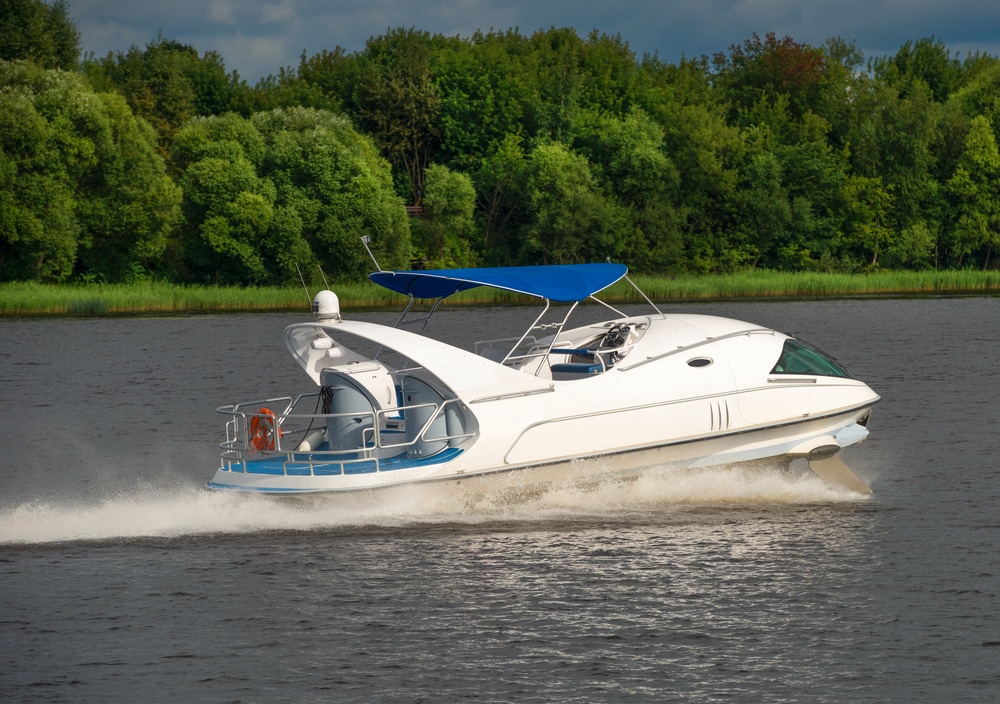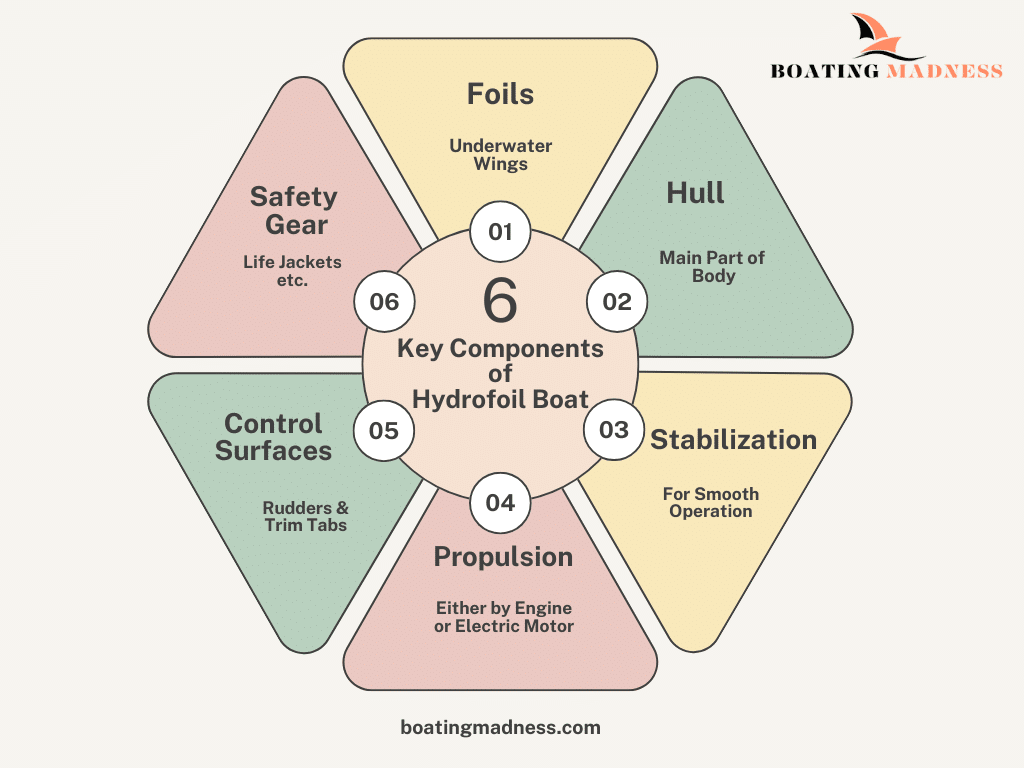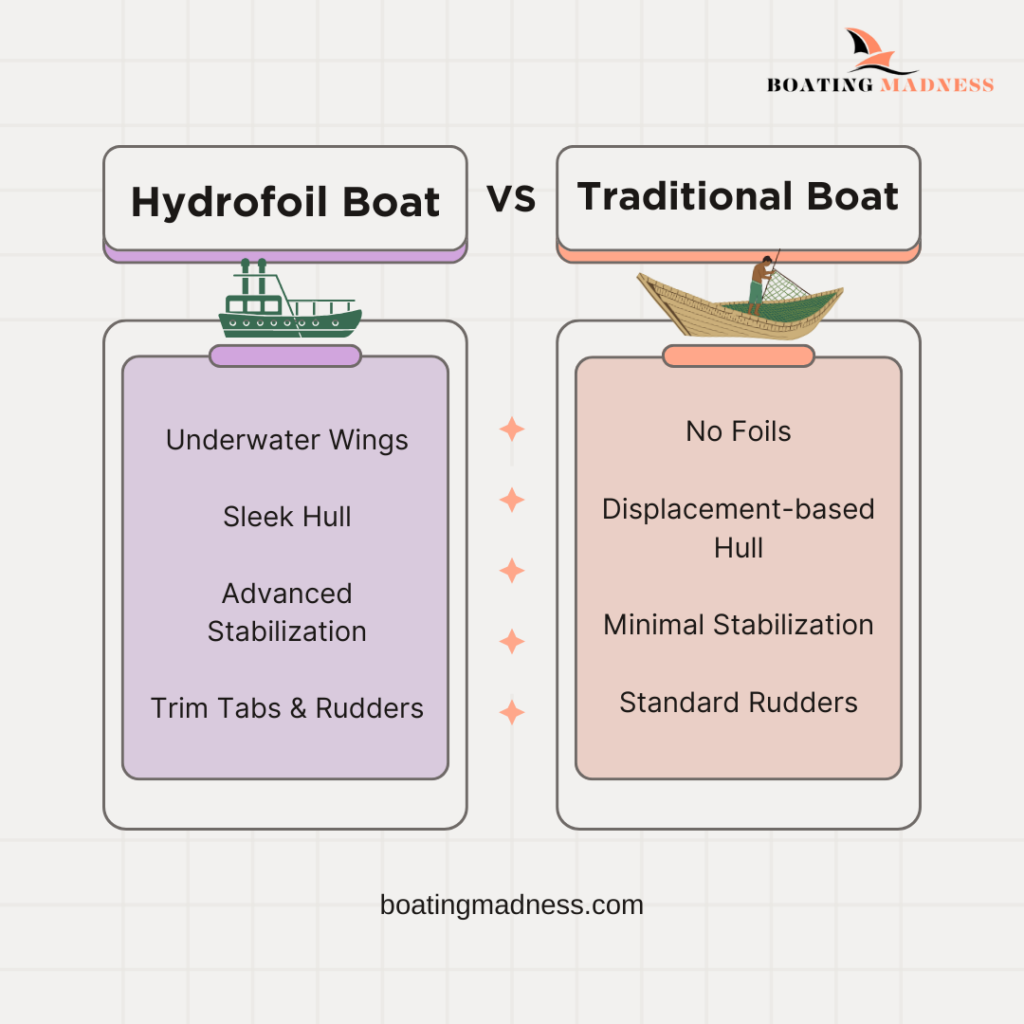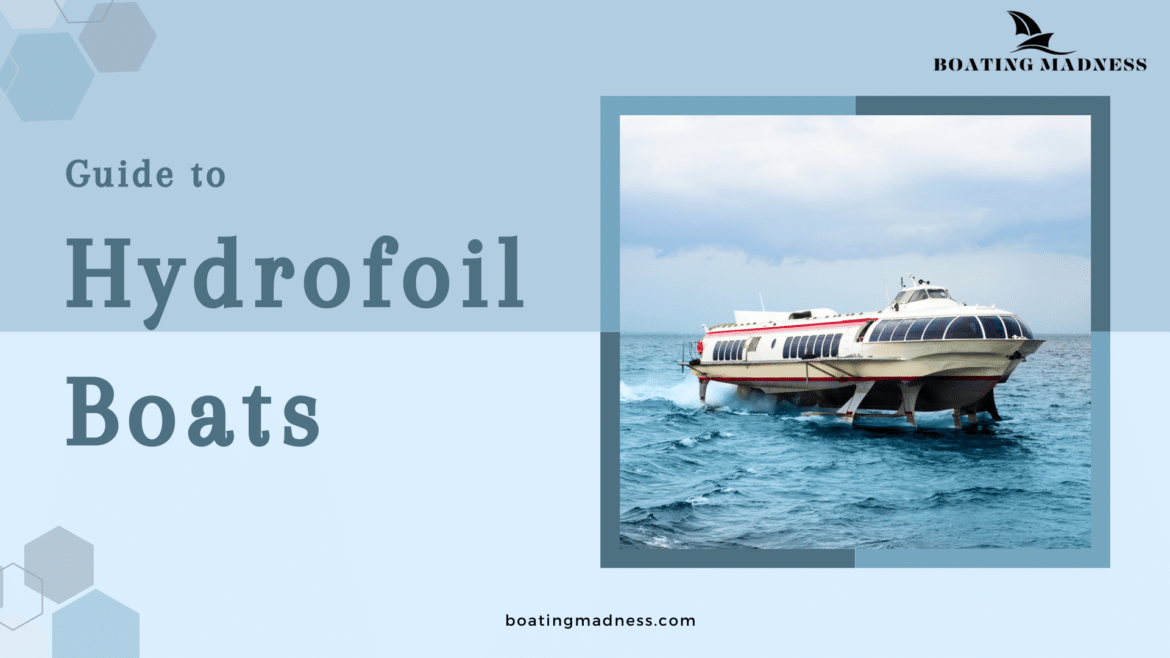Table of Contents
Do you want to dive on an old boat with old technology but much faster propelling speed? If that is the case, the hydrofoil boat is the answer for you. When we talk about different parts of a boat, it is noteworthy to mention that almost all the basic parts are the same in each boat. What is the basic difference? These differences are marked based on their functionality and their design shape. So, in the case of hydrofoil vessels, the propeller speed and foiling technology are what sets them apart. In this article guide, we will unravel the detailed concept of hydrofoil vessels, their functionality, and how they work. Without further ado, let’s delve deep into the guide.
Technology in Hydrofoil Boat

Key Components of a Hydrofoil Boat

Hydrofoil boats aren’t just your everyday watercraft; they’re like the sports cars of the sea! With specialized designs and techy upgrades, they’re built for speed, efficiency, and a thrill-packed ride. Let’s check out what makes these boats tick:
The following are the essential parts of a hydrofoil boat:
Foils
The Wings Underwater
These are the rockstars of hydrofoil boats. Think of them as underwater wings lifting the boat above the waves. Lightweight and super-strong, they’re usually made from carbon fiber or aluminum.
- Why they rock: Less water drag, more speed, and a smoother ride.
- Shapes and sizes: They vary based on boat type—small, big, or somewhere in between!
Hull
The Body That’s Built for Speed
A hydrofoil’s hull is designed to party with the foils, keeping things stable while zooming across the water. Lightweight materials make it fast yet tough enough to handle the splashy action.
Stabilization System
Your Ride Smooth Operator
When you’re speeding through waves, you need balance! These systems, like gyros or active fins, act like a boat’s personal yoga instructor, keeping everything zen even at high speeds.
- Tech-savvy vibes: Often computer-controlled for pinpoint accuracy.
- Bye-bye bumps: Say hello to smooth, wave-proof rides!
Propulsion Systems
The Power Behind the Zoom
Whether it’s a classic engine or a quiet electric motor, propulsion systems give the boat its oomph. Paired perfectly with the foils, they maximize speed and efficiency like a dream team.
Control Surfaces
The Captain’s Best Friends
Rudders and trim tabs are like the steering wheel and brakes of your car. They let you steer, roll, or pitch the boat while keeping things steady.
- Why it matters: They help the captain stay in control, even during sharp turns.
- Smooth sailing: Precision steering means you can focus on the fun!
Safety Gear
Keeping the Fun Safe
Hydrofoil boats are exciting, but safety comes first. Life jackets, fire extinguishers, and emergency gadgets are must-haves for peace of mind.
Together, these essential elements enable hydrofoil technology’s full potential and deliver a quick, effective, and thrilling experience on the water.
If you want to explore top hydrofoil boats, check out Chris Jefferies’ blog.
Difference Between Traditional and Hydrofoil Boats

The small hydrofoil boat or pontoon boat hydrofoil has a structure different from the typical boats. Let’s see the basic differences in the design of these boats.
Conclusion
To sum up, this article covered the details of the concept of a hydrofoil boat along with its key components. Not only can one enjoy the elevated boating experience but also the efficiency of the old technology used in the design of this boat.
Sail Above the Waves with Hydrofoil Magic!


1 comment
[…] to note that boats aren’t cheap; they are huge investments, no matter whether you own a hydrofoil boat or a drift boat. So, to protect your investment, you need to explore some […]